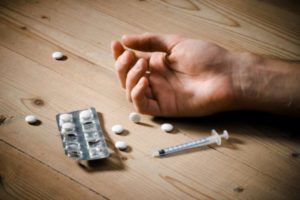
Substance use disorders, trauma, and eating disorders are extremely common in America. With the recent surge of substance abuse that the country has seen, it is more important now than ever before to have appropriate treatment options available. Our Residential Treatment Center Los Angeles is here to help you recover in a safe and comfortable environment.
Addiction is defined as a chronic, relapsing disease of the brain. This disease, like many others, is treatable, however not curable. Unfortunately, many people who have a substance use disorder do not obtain the treatment they need in order to manage this disease properly. Continuing down the path of addiction can lead to severe, life-altering consequences, and can even be deadly.
Someone who is experiencing instances of trauma on a regular basis is unable to heal on their own. When something traumatic occurs, individuals can react in a number of different ways. Some might adopt avoidance techniques, some might turn to self-harm while others simply cannot stop ruminating about their traumatic experience. Continuing to live with the negative effects of it can be devastating and lead to even more trauma.

Eating disorders are not conditions that develop without reason. While people develop eating disorders in an effort to achieve a weight that they think is socially acceptable, even more, partake in eating disorder behaviors as a result of more serious underlying issues.
Just as with any other type of illness, eating disorders require professional residential treatment.
People can feel like getting professional treatment is too overwhelming, not only because it forces them to completely change their current lifestyle, but also because they are not sure what to expect or where to go if they reach out for help. This is very common, however, studies have proven that professional inpatient treatment is the best and most effective way to treat addiction.
Those who are abusing drugs and/or alcohol, suffering from cases of trauma or living with an eating disorder can benefit from asking for help. And, for many, a residential treatment center in Los Angeles is where they will begin their care.
What to Expect in Our Los Angeles Residential Treatment Center
When it has been deemed appropriate for an individual to participate in residential treatment, he or she will be provided with a plan for their care. In the case of substance abuse, this plan will begin with detoxification, or “detox”.

Detox for Substance Abuse
Detox is the process of clearing the body of any and all toxic substances. Before an individual can begin the therapeutic portion of his or her residential treatment, he or she needs to be of clear body and mind. Depending on the type of substance or substances that an individual was abusing, the stage of detox can last anywhere from a few days to a few weeks. Afterward, residential treatment will provide clients with medical and mental health care to support them through this often overwhelming first step of recovery.
Addiction and Trauma Therapy in Residential Treatment Los Angeles
When the client has graduated from detox or if they come straight to our inpatient facility, he or she can begin taking part in the core part of our Los Angeles residential treatment center – therapy.
Addiction, trauma, and eating disorders are illnesses that affect individuals mentally and emotionally, which is why the implementation of evidence-based therapy is critical in order to help them root out the core issues that pertain to their harmful behaviors. To help do this, clients will participate in individual therapy sessions, group therapy sessions, and family therapy sessions if recommended. The three of these kinds of therapies will help the client uncover the underlying causes of his or her issues, help him or her develop effective coping skills and encourage improved communication and socialization, to name a few.
Other therapies that have proven to be effective in treating addiction and trauma will also be provided. These include trauma therapies such as immersion therapy, as well as behavioral therapies such as cognitive behavior therapy (CBT) and dialectical behavioral therapy (DBT). All clients will be provided with the therapeutic means that are most appropriate for their personal situations, all while maintaining the goal of recovery.
Aftercare

When the time comes for a client to leave our Los Angeles residential treatment center, he or she will be provided with an aftercare plan that will help him or her remain on the road to recovery. This plan can include ways to avoid triggers, prevent relapse, and maintain strong mental and physical health. It can also include personal details, such as not getting into any new relationships within the first year of recovery or dedicating oneself to going to 12-Step meetings X amount of times each week.
The client and those who have worked closely with him or her during residential treatment will work to create an aftercare plan that is both attainable and manageable.
Do You Need Help? Our Los Angeles Residential Treatment Center is Here for You
Each individual has different needs. Many of them require a strong hands-on approach to treatment, which is what can be obtained at residential treatment. Treatment programs such as these can provide individuals with the level of resources they need in order to successfully overcome their active addictions and traumas.
If you are addicted to alcohol, opioids, cocaine, meth, or any other addictive substance or suffering from mental health issues do not let one more day pass you by without reaching out for help. No matter how overwhelmed you might feel, no matter who you think will judge you – ask for help.
Attending inpatient treatment can give you the second chance that you deserve to get your life back on track. There is nothing to be ashamed of by having an addiction or mental health issue. What you can be proud of, however, is the hard work and effort you put into your recovery.
Do not wait. Contact our Los Angeles residential treatment center right now to get started on a brighter tomorrow.












